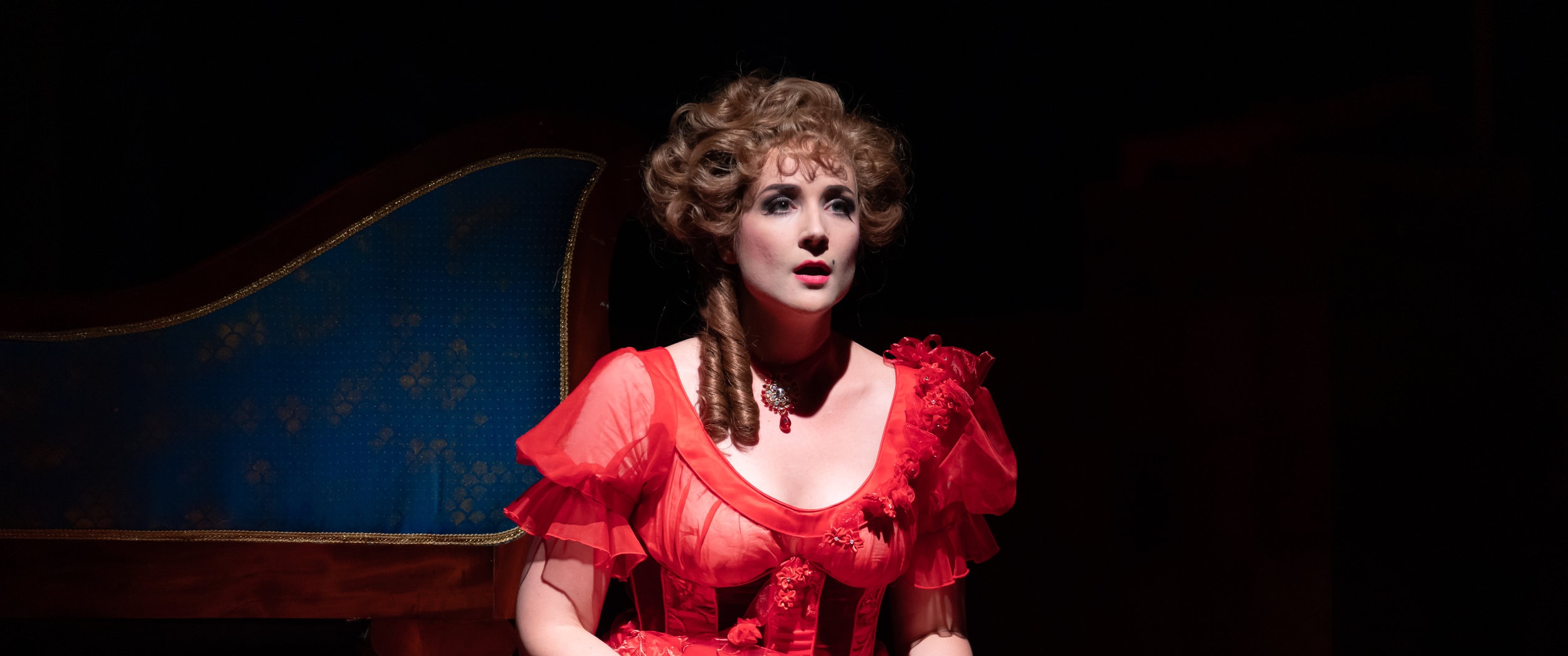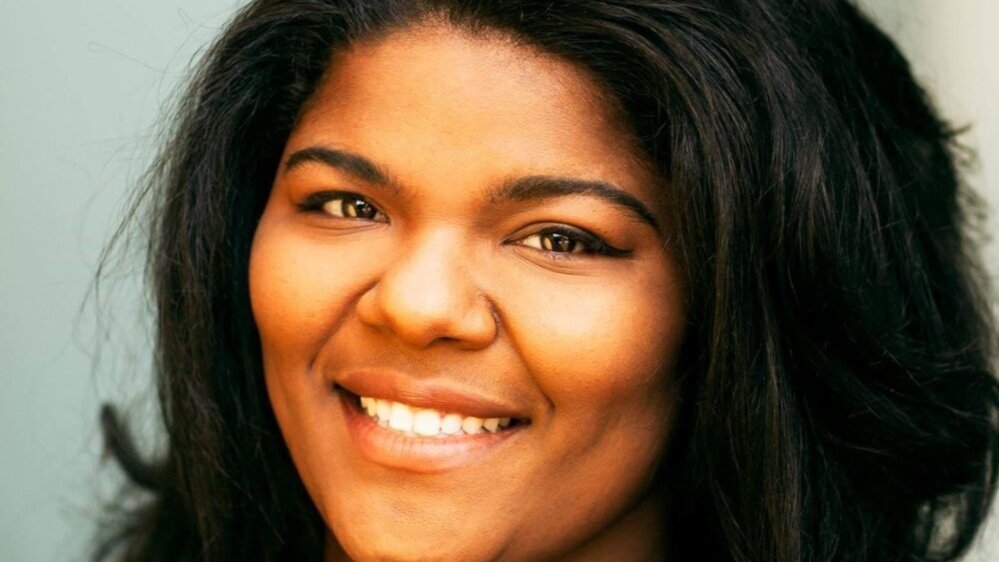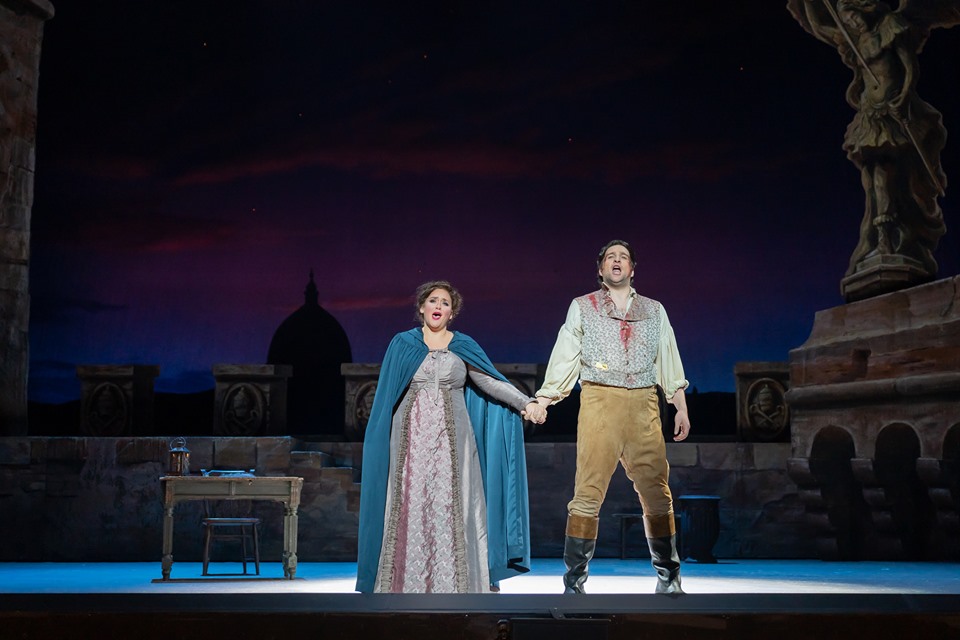AOI - The future, now

Washington National Opera does two important things better than most large U.S. opera companies: it presents new work by contemporary American composers and librettists, and does an extraordinary job of casting artists of color in leading roles. Most major arts organizations have undertaken similar efforts in recent years, but WNO has been at the forefront of these efforts longer than most and has stayed consistent in its commitment.
Nowhere has that been more evident than in WNO’s American Opera Initiative, which brings together participants in its Cafritz Young Artists Program with emerging composers and librettists under the guidance of experienced mentors to create and present new, short operas (usually around twenty minutes in length). This collaborative project is now a decade old, and if it hasn’t grown in scale -- I think there used to be two nights of performances for the short pieces, plus a full-length, associated work presented concurrently -- it has solidified into an important part of the American opera landscape, and deserves more attention from both opera enthusiasts and the donors and organizations that support the art form.
The current format of AOI -- two performances of three short pieces in one night at the Kennedy Center’s Terrace Theater -- doesn’t do much to draw attention to it, but if you’re reading this you probably already understand the economics behind such decisions. Even at very low ticket prices ($19), getting people to show up for what is essentially an artistic crapshoot is a tough sell, especially in an environment as conservative as the Kennedy Center. The biggest downside to this situation is that there is very little way to build word-of-mouth about something that might resonate with a wider audience. It’s an insider’s event - blink and you miss it.
Maybe that’s the way it should be- the quality of what I’ve seen and heard has varied widely, and this year’s program was no exception, but I’ve now attended four AOI programs and I’ve left each one feeling it was well worth my time, and that American opera has a future. Plus, there’s some serious talent being cultivated in these performances.
That was especially true of the 2020 edition, which featured the standout, Night Trip, by composer Carlos Simon and playwright Sandra Seaton. Since then, Simon’s career has really taken off: he’s the Kennedy Center’s current Artist-in Residence; his work has been heard at LA Opera, Minnesota Orchestra, and the New York Philharmonic; his recent album was nominated for a Grammy Award; and he was one of the mentors for this year’s AOI (along with conductor Evan Rogister and librettists Kimberly Reed and Kelley Rourke).
I mention Simon’s success because this year’s version of AOI had some participants that could find themselves on a similar trajectory: composer Jens Ibsen and librettist Cecelia Raker, whose show-closing Bubbie and the Demon was an absolute musical and comic delight. Set up like a sitcom or an extended SNL skit, Bubbie (played by Cecelia McKinley) is a lonely woman who unknowingly summons the Demon (Jonathan Patton) to her apartment by solving a newspaper puzzle. Karen (Teresa Perrotta) is her concerned, confused neighbor. The plot and lyrics are clever, and laugh out loud funny, but it’s Ibsen’s willingness to throw musical caution out of Bubbie’s window and create music he likes, with equal measures of harmony and heavy metal, that keeps it humorously on target. I look forward to hearing more from him. (Bay Area audiences can hear a new work of his on March 19 with the Piedmont East Bay Children’s Choir. The Washington Post’s Michael Brodeur featured Ibsen in his recent “23 for 23” article about classical music artists to watch, noting the SF Symphony has him on their 2023-24 season.)
The performance opened with B.E. Boykin and Jarrod Lee’s Oshun, a flowing, marvelously sung folk story performed by Katerina Burton, Christian Simmons, Daniel Smith, and Anthony P. Ballard. It drew a rapturous, extended response from the audience. Boykin writes gorgeous vocal lines.
The middle piece, What The Spirits Show, is problematic. Composer Silen Wellington and librettist Walken Schweigert have created an earnest, heart-on-its-sleeve work that demands rather than elicits empathy and understanding from the audience because everyone should be against social injustice, religious intolerance, hate, discrimination and every other horrific thing that happens in the world, especially when it happens to people who are trans, non-binary, or otherwise non-conforming. I can’t argue against that standpoint -- no decent person would, no thinking person should -- but grievance and pain expressed as screed doesn’t make for great, or even interesting, theater or opera just because it’s on the “right” side: as a member of the audience, it just makes me feel manipulated.





